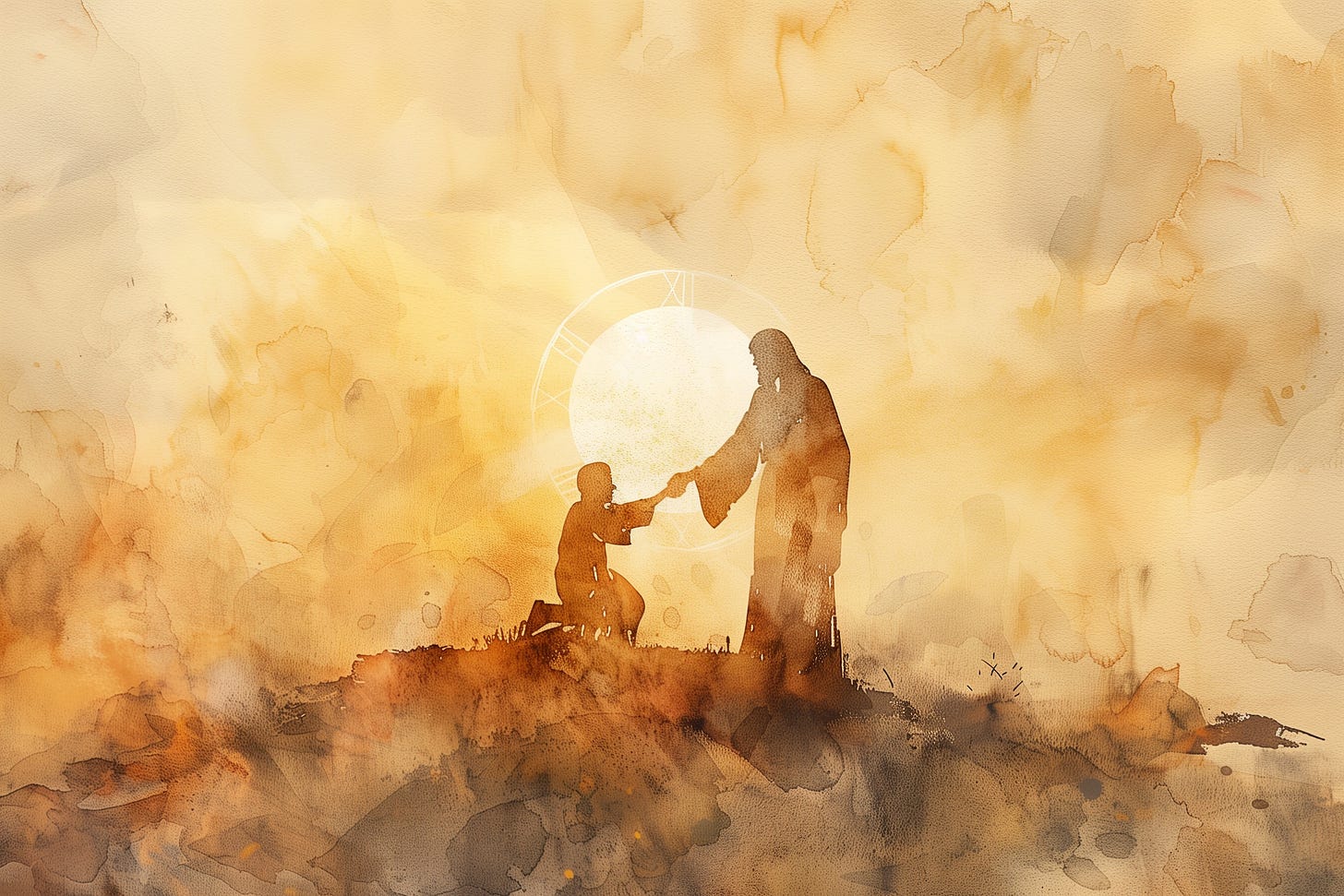Forgiveness Reflects God's Character
We forgive because it’s what our Father does.
Forgiveness begins with remembering who we are, and whose we are. Paul writes, “Therefore, as God’s chosen ones, holy and dearly loved, put on compassion, kindness, humility, gentleness, and patience, bearing with one another and forgiving one another if anyone has a grievance against another. Just as the Lord has forgiven you, so you are also to forgive” (Colossians 3:12-13).
Those first few words set the foundation: chosen, holy, and dearly loved. That’s who you are in Christ. And it’s why you forgive. We forgive because we belong to God. We forgive because His grace has set us apart. We forgive because he deeply loves us.
When that truth settles into your heart, forgiveness stops being about emotion and becomes an act of imitation. We forgive because it’s what our Father does.
Forgiveness Flows from Compassion and Kindness
Paul tells us to “put on” compassion, kindness, humility, gentleness, and patience, like clothing that identifies us as Christ’s people. Forgiveness happens when those virtues work together.
Compassion sees the person behind the offense. Kindness softens the tone that could make things worse. Humility remembers that we, too, have failed. Gentleness chooses restoration over revenge. Patience gives time for healing. Forgiveness doesn’t mean pretending the wrong never happened. It means responding to it with the heart of Christ.
Forgiveness Imitates God’s Grace
Paul says, “Just as the Lord has forgiven you.” That phrase should stop us in our tracks. God didn’t forgive us because we earned it. He forgave us because of His mercy. Romans 5:8 reminds us, “While we were still sinners, Christ died for us.” If God could forgive us at our worst, how can we withhold forgiveness from others at theirs?
Forgiveness is not about keeping score; it’s about keeping grace in motion. Every time we forgive, we continue the work God began in us. We become living reflections of His mercy. Think of a mirror. Its only job is to reflect what shines on it. When God’s grace shines on your heart, it’s meant to reflect that light outward. But when resentment or pride covers the surface, the reflection fades. Forgiveness wipes the surface clean so that God’s love can shine through you again.
Forgiveness Honors Our Identity in Christ
Forgiving others isn’t a burden; it’s a privilege. It’s the mark of someone who knows what it means to be forgiven much. The more aware we become of God’s mercy toward us, the more ready we are to extend mercy to others.
That’s why forgiveness isn’t optional. It is essential to discipleship. If I belong to Christ, I must reflect His character. That means I refuse to let bitterness define me. I choose to forgive, even when my emotions resist. I let grace have the final word.
When you forgive, you’re doing one of the most Godlike things a human being can do. Forgiveness is not weakness; it’s strength under control. It’s power wrapped in mercy.
Conclusion
Forgiveness doesn’t start with your feelings. It begins with your identity: chosen, holy, and loved. When you live out of that truth, forgiveness becomes not just possible, but natural.





That was such a beautiful and timely message brother Matthew. Forgiveness truly reflects the very heart of God. As you wrote, it’s not about our emotions—it’s about imitating our Father who forgave us completely through Christ. Your reminder of Colossians 3:12–13 touches deeply we forgive because we are chosen holy and dearly loved. That identity changes everything. When I struggle to forgive I often hold onto Ephesians 4:32 which says be kind and compassionate to one another forgiving each other just as in Christ God forgave you. It reminds me that forgiveness isn’t optional it’s the natural fruit of grace at work in our hearts. I also think of Matthew 6:14–15 where Jesus teaches that if we forgive others our heavenly Father will forgive us. That’s a sacred invitation to live free from bitterness. Thank you again for this reflection it really encourages me to keep walking in grace. Please keep me and our Indian ministry in your prayers sir. We’re striving to share this same message of forgiveness and freedom in Christ even in challenging places. I’ve tried to reach you several times sir but I know you’re busy. Still your words continue to bless and inspire us.
Excellent thoughts putting things in perspective!